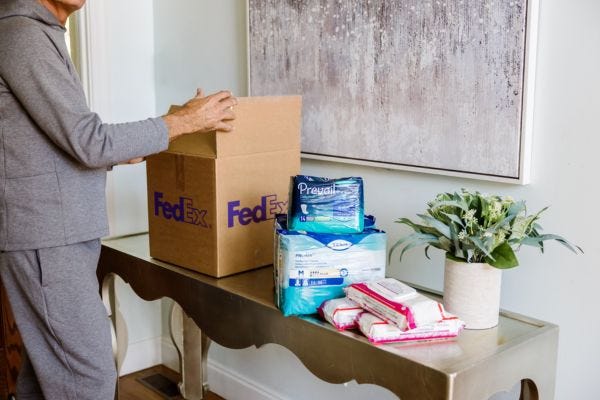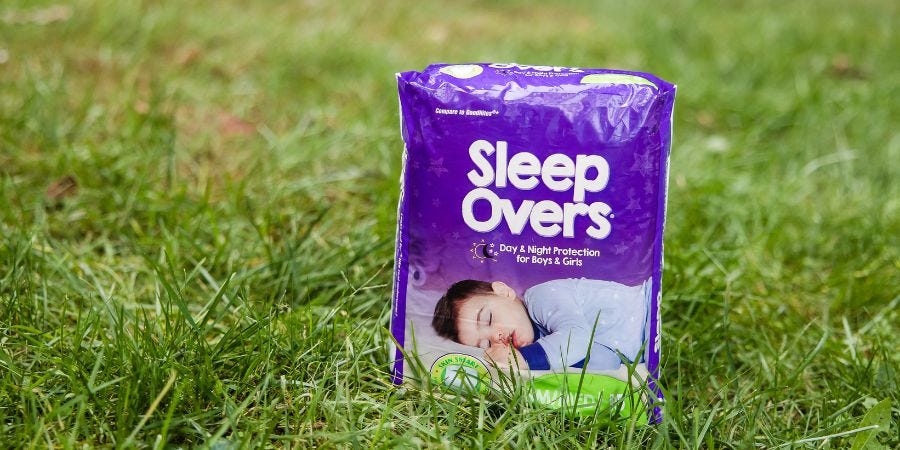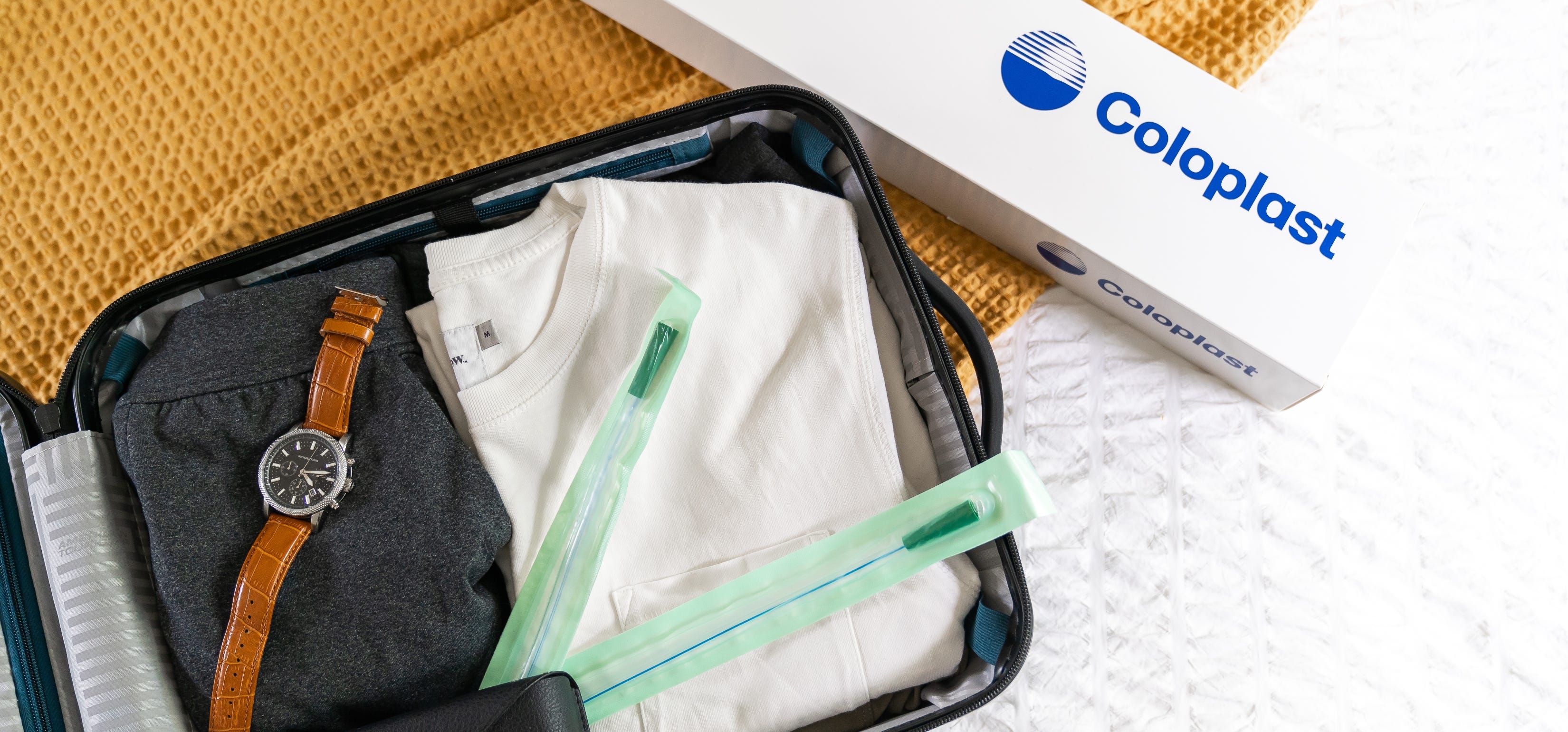Key Takeaways:
- Original Medicare doesn’t currently deem incontinence supplies as medical necessities, so they aren’t covered under basic plans.
- Original Medicare and Medicare Advantage plans may cover certain continence care supplies, such as catheters if you’ve been diagnosed with urinary incontinence or urinary retention.
- Medicaid may fully cover incontinence products, such as adult diapers, protective underwear, pediatric diapers, pull-ups, and other supplemental items.
Wondering if Medicare covers incontinence supplies? While Original Medicare doesn’t, there are options through Medicare Advantage and Medicaid. This blog breaks down coverage details and alternative resources to help you access the incontinence supplies you need.
Check Your Eligibility
In Under 2 Minutes
Discover the incontinence products available through your insurance.
Does Medicare Cover Incontinence Supplies?
Will Medicaid Cover Incontinence Supplies?
How to Apply for Medicaid to Receive Free Incontinence Supplies
Other Options for Free Incontinence Supplies
How to Get Free Incontinence Supplies Through Medicaid & Aeroflow Urology
INCONTINENCE PRODUCTS THROUGH INSURANCE:
Aeroflow Urology is in-network with many Medicaid and Medicaid-managed insurance plans and is accredited by Medicaid. Complete our Eligibility Form, and we’ll automatically check to see if your plan covers incontinence supplies. ***Must meet certain requirements to qualify.***
You will also receive the care and attention every person managing incontinence deserves: A personalized list of 100% insurance-covered incontinence supplies, a dedicated Continence Care Specialist you can contact during business hours, a user-friendly online portal for easy monthly reordering, and educational content.
Get the continence care you need with the dignity you deserve. Join the Aeroflow Urology family today! It only takes 5 minutes to get started.
Does Medicare Cover Incontinence Supplies?
Unfortunately, Medicare, which is run by the federal government, does not currently deem absorbent incontinence products as medical supplies, so basic Medicare coverage won’t pay for them.
However, if you have a Medicare Advantage plan or Medicare Part B healthcare plan, you may be able to receive different types of non-absorbent durable medical equipment (DME) supplies, such as catheters, at a low cost through your health insurance benefits.
Your incontinence supplies may be covered if you have a dual health plan and are enrolled in both Medicare and Medicaid.
Will Medicaid Cover Incontinence Supplies?
Depending on your state, your unique medical condition, and your specific insurance plan, your Medicaid program may cover the cost of your incontinence supplies.
While every individual’s coverage for incontinence products is different, most Medicaid plans or Medicaid managed care insurance companies offer coverage for the following absorbent products:
- Adult diapers (adult briefs).
- Bladder control pads (liners).
- Adult protective underwear (adult pull-ons).
- Pediatric diapers.
- Pediatric pull-ups.
- Gloves, wipes, underpads (chux).


These incontinence supplies protect against urinary and / or fecal leakage and can keep you confident and comfortable, improving your quality of life.
How to Apply for Medicaid to Receive Free Incontinence Supplies
If you qualify for Medicaid, you won’t have to pay for over-the-counter incontinence supplies out of pocket because you may be eligible to receive them through insurance!
To apply for a Medicaid health insurance program, visit your state’s Medicaid website and apply online or call your state’s Medicaid office.
Your insurance coverage will vary depending on your medical condition and your state.
Other Options for Free Incontinence Supplies
If you aren’t eligible for Medicaid or a Medicaid managed care plan, you may be able to go to your local diaper bank to receive free incontinence supplies. Find a diaper bank near you by using the National Diaper Bank Network’s website.
How to Get Free Incontinence Supplies Through Medicaid & Aeroflow Urology
If you have Medicaid coverage, you may qualify to get free incontinence supplies through your state’s Medicaid program with Aeroflow Urology.
Submit our secure Eligibility Form to determine your coverage for adult briefs, protective underwear, bladder control pads, kids’ diapers, pull-ups, and more.
After you submit your or your loved one’s information, we’ll determine your coverage within 1-2 business days. You’ll need a diagnosis and a required prescription for your incontinence supplies from your healthcare provider, so be sure to make an in-person appointment before and after you apply for coverage.
Disclaimer
Information provided on the Aeroflow Urology blog is not intended as a substitute for medical advice or care from a healthcare professional. Aeroflow recommends consulting your healthcare provider if you are experiencing medical issues relating to incontinence.











